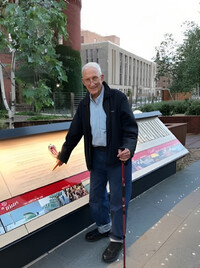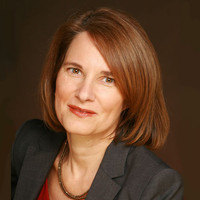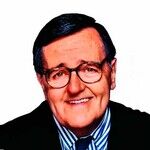My Dad Richard and I just had a long talk about his boyhood in Madison, by the University of Wisconsin campus. Neighbors knew each other's kids well in the 1930s and '40s era.
One made kids listen to opera. Another father built a soapbox derby and strung a telegraph line between houses. He set up a croquet court for fun.
Another had an encyclopedia that kids could use anytime. A shy lawyer, Mr. Hicks, left his garden tomatoes by family front doors without knocking.
Then there was Gerta, the neighborhood radical. Her husband Tom Amlie was a Progressive member of Congress.
My father's memory sounds like a paradise lost.
"The steam radiator below the window was my favorite place to watch the snow fall on a winter evening, each flake illuminated by the streetlight."
"After (summer) supper was the best part of the day. The heat had retreated, the crickets were singing, a breeze kept the mosquitos at bay. Darkness didn't descend until 9 o'clock. The gang gathered on a level section of Van Hise Avenue for softball or neighborhood games like 'One o'clock and the Ghost didn't come.'"
The grown-ups on screen porches kept an eye on things, but they had card games going. They did not supervise, schedule or coach. Among friends, they just let kids be kids.
Richard and his best friend sometimes put on a carnival for the younger children. "We had booths for a few games of Chance or Skill for a nickel. These included tossing a ball through a hole... (and) dropping pennies in a jar," he wrote. "Prizes were marbles or firecrackers. Usually we netted five dollars."
Richard, the second of four kids, was raised in a white barn-shaped house by a nurse. My grandmother Marie's husband, a doctor, died when the boy was 8.
Strange, but not having a father was not that bad in a world so complete and secure. Besides, my father's "Father" remained a formal figure.
Their street led to Camp Randall, the UW football stadium that turned into another summer playground. History lived there, with Civil War cannons in the old Confederate prisoner of war camp. The red-brick public school, Randall, stood nearby.
My Dad tells how he became the city tennis champion from humble beginnings, not private lessons.
"Art history professor Jack Kienitz invited Steve and Jane Morton and me to accompany him to the University courts. Although Jack wasn't much of a player, he gave us a few tips and some old balls and sent us to the backboard while he played doubles."
The eclectic Madison tennis crowd had a lasagna dinner every month.
My Dad's first regular partner was John Stuhldreher. His father was the UW football coach and, yes, quarterback of the legendary "Four Horsemen" of Notre Dame, immortalized by sportswriter Grantland Rice.
"After tennis, we recessed to John's house to play Hearts with Coach Harry and his older brothers. The coach did not like to lose in football or Hearts. In late August, he announced he couldn't play with us anymore — Fall football practice beckoned."
Adorable.
A medical resident, Dr. Schilling, lived in a flat across the street and followed my father's budding tennis career. "He congratulated me when I did well enough to get my name in the sports section of the newspaper," my Dad recalled.
Dr. Schilling's future wife, Miriam Hansen, acted as drama teacher at West High. The school drama was "Our Town," a 1938 play by Madison-born Thornton Wilder.
My Dad endured Rev. Alfred Swan's brimstone sermons and fishing with grumpy Uncle Herb.
Then again, the brighter side: "My allowance did not cover the tennis balls, milkshakes and movie double features required to maintain my standard of living. So I signed up for a paper route."
Age 12 in 1945, Richard witnessed rejoicing at the "screaming headlines" in Capitol Square, proclaiming victory in World War II.
Soon he witnessed women weeping at news of President Franklin Delano Roosevelt's death.
The pinnacle came when Richard and friends climbed branches of a tree hanging over Lake Wingra. As they jumped, the famous photographer Alfred Eisenstadt "snapped pictures furiously."
Then came the 1948 Life magazine cover story: "The Good Life in Madison, Wisconsin."
Jamie Stiehm may be reached at JamieStiehm.com. To find out more about Jamie Stiehm and other Creators Syndicate columnists and cartoonists, please visit Creators.com.







View Comments